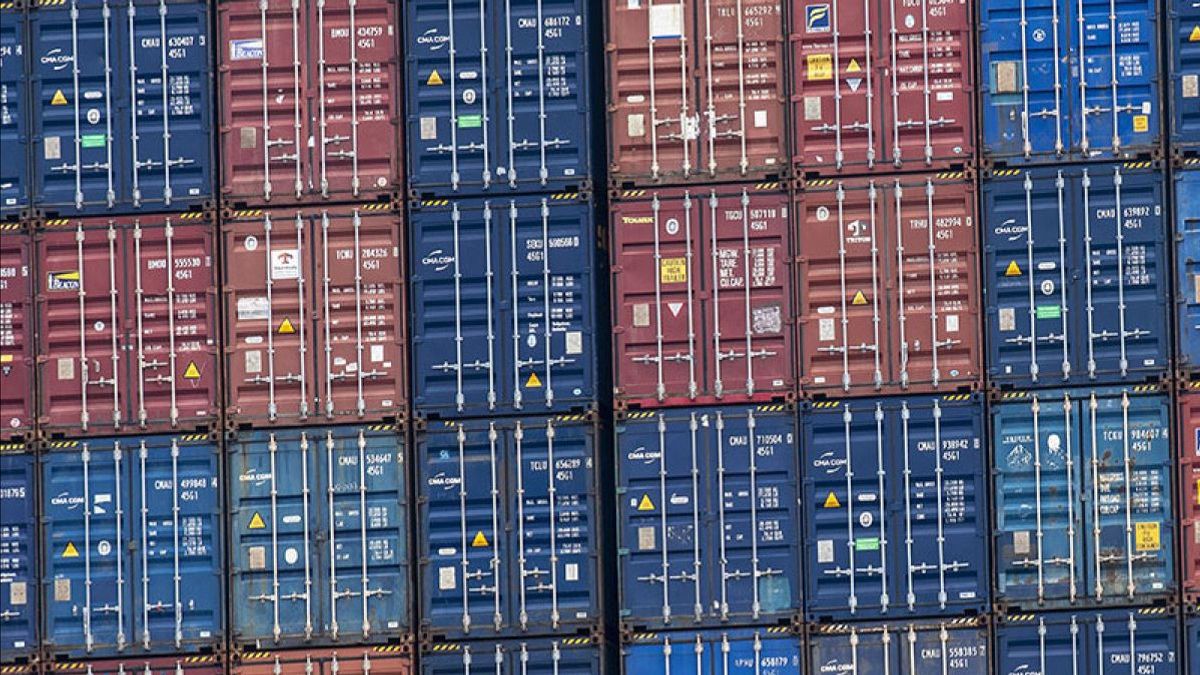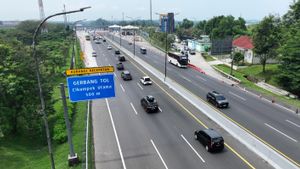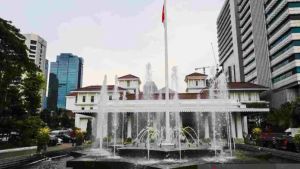JAKARTA - The government will apply a Value Added Tax (VAT) of 12 percent on January 1, 2025.
UPN Veterans Public Policy Economist and Expert Achmad Nur Hidayat assessed that the increase in VAT rates was a hot issue among the Indonesian people due to the emergence of an online petition entitled Government, Immediately Cancel the VAT Increase and it has been signed by more than 100,000 because many parties feel that this policy is not in accordance with the current economic conditions of the community.
The government's plan to increase VAT from 11 percent to 12 percent in January 2025 is based on Law Number 7 of 2021 concerning Harmonization of Tax Regulations (UU HPP).
Achmad said that this policy aims to increase state revenue, which is projected to increase around Rp. 100 trillion per year from the consumption tax sector.
According to Achmad, this increase is estimated to increase inflation by 0.5 percent in the first year of implementation, especially having an impact on the prices of basic necessities and other goods.
"The government needs to consider the impact on other expenses for the stimulus that may be needed to reduce the pressure on price increases on people's purchasing power," he explained in his statement, Friday, December 20.
As for the context of the stimulus, the government has prepared an Economic Policy Package for Welfare with a total value of IDR 445.5 trillion or 1.83 percent of GDP.
Details of this package include 15 types of fiscal and non-fiscal incentives, including exemption from VAT for basic necessities such as rice, meat, fish, eggs, and consumption sugar;
Government-borne VAT (DTP) of 1 percent for strategic basic necessities such as wheat flour and bulk cooking oil; food assistance in the form of 10 kilograms of rice per month for 16 million people in decile 1 and 2; discounted electricity rates by 50 percent during January to February 2025; and incentives for the business sector, including the final PPh of MSME 0.5 percent.
Achmad said this package was designed to reduce inflationary pressures due to the increase in VAT and support the purchasing power of vulnerable people.
"However, if there is no increase in VAT, the stimulus expenditure of IDR 445.5 trillion is not needed, so that the efficiency of the budget and the sustainability of the APBN can be achieved more strongly," he explained.
According to him, the policy of increasing VAT does not seem appropriate in the midst of a fragile economic recovery.
Achmad said there are several other options instead of increasing VAT by 12 percent, it's just that this option requires extra work from policymakers and extra persistence as follows:
1. Optimizing Digital Tax
The development of the digital economy in Indonesia is very rapid, but tax revenue from this sector is still not optimal.
In 2023, Indonesia's digital economy sector is projected to reach a transaction value of 77 billion US dollars, and this figure continues to increase every year.
According to Achmad, the tax contribution from this sector is still below 5 percent of total tax revenue. Therefore, the Government needs to improve taxes collection mechanisms from digital platforms, including e-commerce, streaming services, ride-hailing applications, and online marketplaces.
"One of the steps that can be taken is to increase supervision and enforcement of regulations against foreign digital companies operating in Indonesia," he said.
Achmad gave an example, such as, many global digital companies are still not registered as official taxpayers in Indonesia, so the government has lost significant tax revenue potential.
Achmad said that the potential for revenue from digital taxes is very large.
If the government can impose fair taxes on digital transactions, including value added tax (VAT) and income tax (PPh) for digital business actors, state revenues from this sector are estimated to reach an additional IDR 70-IDR 100 trillion per year.
By comparison, countries such as the UK have implemented a special digital tax known as the Digital Services Tax (DST).
This tax sets a tariff of 2 percent for technology company revenues from domestic users. In the first year of its implementation, the UK DST managed to raise more than 700 million US dollars.
Meanwhile, France has also imposed a digital tax similar to the 3 percent tariff, targeting tech giants such as Google, Amazon, and Facebook.
Indonesia can study this model and adapt it to local conditions.
In addition, Achmad said that the Indonesian government can also introduce a cooperation scheme with digital platforms to facilitate tax reporting and collection. For example, South Korea uses real-time data integration between e-commerce platforms and tax authorities to ensure that all transactions are recorded accurately.
"Models like this can be applied in Indonesia to increase transparency and accountability," he said.
Achmad said that by optimizing digital tax policies, the government could not only significantly increase state revenue, but also create a fairer competition climate for local and global business actors.
"This step also reduces dependence on traditional consumption taxes that burden the general public," he said.
2. Income Tax Reform (PPh) for the Top Class
Achmad conveyed that the Government can re-evaluate the structure of Income Tax (PPh) for high-income groups.
The imposition of more progressive tariffs in the super-rich group will create additional revenue without having a direct impact on the majority of society.
Achmad said, the introduction of wealth tax (wealth tax) to assets also provides an atmosphere of equity to those who are super rich.
This approach is also fairer because it distributes tax burdens according to individual economic capabilities.
3. Improvement of VAT Collection Governance
The government must focus on improving the current 11 percent VAT collection governance. By closing the tax leak gap, increasing supervision, and strengthening the tax information technology system, the additional potential for revenue can reach IDR 50-IDR 75 trillion per year without having to increase the tariff.
4. Evaluation of Tax Free Packages for Mining and Downstreaming Investments
The tax exemption policy for the mining and downstream sectors needs to be re-evaluated.
Less effective review of incentives can provide additional revenues of up to IDR 30 trillion per year if focused on more productive and sustainable investments.
5. State Expenditure Efficiency
In addition to increasing revenue, the government needs to make efficiency in state spending. Evaluation of programs that are not productive or have a high leakage rate should be a priority.
Funds saved from this efficiency can be diverted to cover budget needs without having to burden the community.
6. Green Economy Development
Investment in the green economy sector, such as renewable energy and waste management, has the potential to increase state revenue through innovation and new incentives.
The government can introduce a fair carbon tax policy, which not only increases state revenue but also encourages environmental sustainability.
SEE ALSO:
Achmad said that delaying the increase in VAT and exploring other more innovative alternatives is a necessary step to maintain people's purchasing power, encourage economic growth, and strengthen public trust.
"Good fiscal policy is a policy that not only produces state revenue, but also supports people's welfare and economic sustainability," he explained.
According to Achmad, by listening to people's aspirations and acting based on comprehensive data and analysis, the government can prove that they really work for the benefit of all Indonesian people.
The English, Chinese, Japanese, Arabic, and French versions are automatically generated by the AI. So there may still be inaccuracies in translating, please always see Indonesian as our main language. (system supported by DigitalSiber.id)














